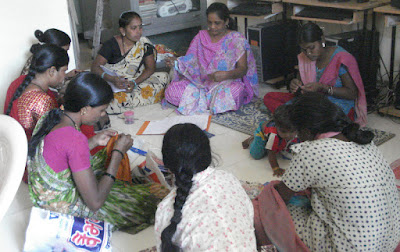Recently sparked by the death of Amanat, a student raped on
a bus in New Delhi, outrage over violence against women has spread to Pakistan,
where a nine year old girl remains in critical condition after being kidnapped
and raped by three men.
The girl's mother found her daughter outside their home,
covered with blood stains and semi-conscious. As the mother headed to the
police station, one of the rapists stopped her and threatened to kill her if
she said anything. After returning home, the woman went back to the police
station and reported the incident to the police, which has formed a team to
arrest the suspects, so far without success.
Meanwhile, in India, authorities have begun to respond to
the wave of outrage sparked by the rape and murder of Amanat, and are pushing
to pass new laws to punish sex crimes and gender-based killings. They have also
announced other measures such as increasing the number of female police
officers to handle these cases and having a specific hotline for these cases.
But the problems of women in India and several countries
that surround it, rests on a patriarchal mindset which approves and justifies
violence against women. It starts with selective abortions, because in general,
families prefer male offspring. When a girl is born, poor families sometimes
throw them in the garbage of bury them alive. Both phoeticide and female
infanticide result in an unbalanced and unnatural male/female population ratio.
The reason for the preference for male over female children
is that a bride's family has to pay a dowry to the groom's family at the time
of marriage, and that the ties between a girl and her biological family are usually
severed once she marries. Thus, it is common for family resources to be
destined to rearing boys, especially among lower social classes. Boys do not
only get a better education, but are better fed and cared for.
Opportunities for women are also cut short when they are
made to marry young. “Over 40% of the world's child marriages occur in India”,
according to a recent UN document. Marriage denies girls their childhood,
deprives them of education and makes them more vulnerable to abuse at the hands
of their husbands, moreover condoned by the women themselves. In its report on
teens in India of 2012, UNICEF found that more than half of teens (57% of boys
and 53% of girls) find it justifiable for a husband to beat his wife.
While the need to protect women and female children is painfully
obvious, the right kind of education is absolutely essential. Deep-rooted
changes in social attitudes are needed to make life safer for women and
girls, and for them to feel integrated into society as valid and
self-sufficient individuals. Cultural changes come slowly, so the sooner
egalitarian values are sowed in children, the sooner will Indian society reap
the benefits of equality.
Sources: BBC News
El País













